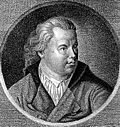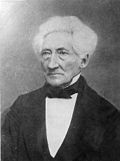| Ambit of the Church of Lippe among the ambits of other Protestant regional churches in Germany | |
|---|---|
 | |
| Basic data | |
| Ambit area: | 1,157.74 km2 (447.01 sq mi) |
| Spiritual leader: | Landessuperintendent Dietmar Arends |
| Memberships: | RB (as of 1884), EKD (as of 1945), UEK (as of 2004), WCRC (as of 2010), Reformed Alliance as of 2010 |
| Classes: | 7 |
| Parishes: | 65 |
| Number of parishioners: | 130,705 (2024) [1] |
| Share of parishioners in the overall population in the ambit: | 38.0% (2024) [1] |
| Website: | www.lippische-landeskirche.de |
The Church of Lippe (German: Lippische Landeskirche) is a Reformed (Calvinist) member church of the Protestant Church in Germany that covers what used to be the Principality of Lippe.
Contents
- Creeds and memberships
- History
- Practices
- Ambit
- Parishioners
- Spiritual leaders
- List of incumbents
- References
- External links
The seat of the church administration is Detmold. The preaching venue of the spiritual leader (Landessuperintendent) of the Church of Lippe is the Redeemer Church in Detmold. The Church of Lippe comprises 65 congregations and 130,705 members. The Church of Lippe is mostly Reformed with a Lutheran minority (c. 30,000), 80% of the members belonging to one of the 59 Reformed parishes.






